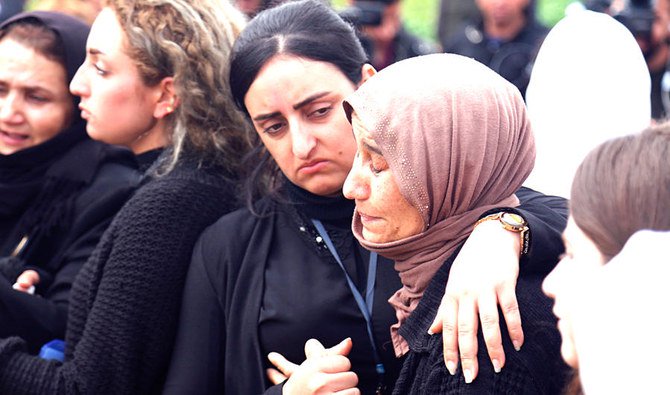Iraq begins examining Yazidi mass graves remains

The head of Iraq’s forensics administration said his office will begin DNA testing to identify the remains of 141 bodies found in mass graves, believed to contain the Yazidi victims of Daesh’s killing campaign five years ago.
Zaid Al-Yousef said the bodies were found in 12 graves located by Yazidi survivors in the Sinjar region in north Iraq.
Al-Yousef told The Associated Press on Sunday it will take until August to identify the remains.
The Iraqi government exhumed a mass grave containing victims of Daesh in the Yazidi stronghold left behind by Daesh in the northwestern Sinjar region, where militants brutally targeted the minority.
The exhumation, which was carried out with UN support, began on March 15 in the village of Kocho.
The militants rampaged across Sinjar in 2014, killing Yazidi men and abducting thousands of women and children. Many followers of the minority faith are still missing, after women were forced into sexual slavery and boys were indoctrinated in extremist ideology.
Over 70 mass graves have been discovered in Sinjar since it was liberated from Daesh in November 2015.
Nobel Peace Prize winner Nadia Murad, a Yazidi who escaped Daesh and became an outspoken advocate for her community, attended the ceremony in her home village of Kojo to mark the start of exhumations.
The UN, which is assisting with the forensic work, says the first opening of a mass grave in the region will help to shed light on the fate those inhabitants killed by Daesh militants.
Hundreds of men and women from the village are believed to have been executed by the militants when they took over the area in 2014.
The Yazidi people were targeted by the Daesh militants who swept across northern Iraq in 2014 and seized their bastion of Sinjar near the border with Syria.
Daesh militants slaughtered thousands of Yazidi men and boys, then abducted women and girls to be abused as sex slaves.
The UN has said Daesh actions could amount to genocide. It is investigating its atrocities across Iraq, it added.
Murad called at Friday’s event for Iraq’s central authorities and those in the Kurdistan region to “protect the mass graves” so that proof could be found of the “genocide of the Yazidis.”
“There will not be reconciliation with the Arab tribes of our region if their dignitaries don’t give the names of those who carried out the crimes so they can be judged,” she said.
The head of the UN investigative team, Karim Khan, said the exhumation marked an “important moment” for the probe, with 73 mass graves discovered so far in Sinjar alone.
“The road toward accountability is a long one, and many challenges lay ahead,” he said in a statement.
“Notwithstanding this, the spirit of cooperation between the survivor community and the government of Iraq is to be applauded.”
Daesh is currently battling to defend the last shred of its crumbling “caliphate” across the border Syria in the face of Kurdish-led forces backed by an international coalition
The Yazidis are a religious minority with unique beliefs that distinguish them from Muslim and Christian worshippers in the region. The Kurdish-speaking Yazidis follow an ancient religion rooted in Zoroastrianism, but Daesh considered them to be “apostates.”
